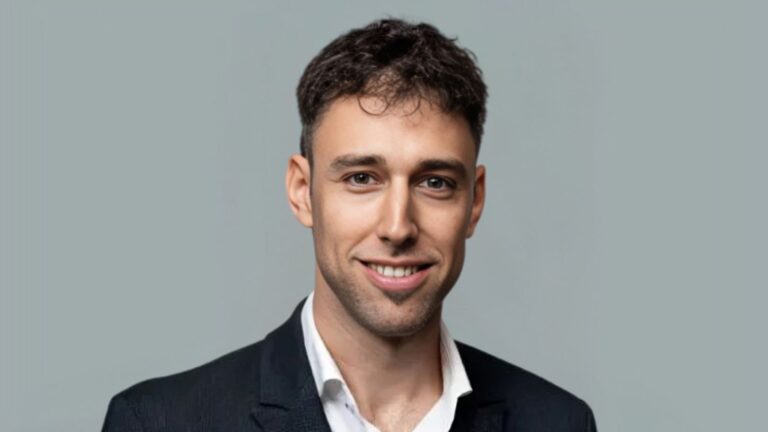Nathan Givoni is the Chief Executive Officer and Co-Founder of Gelteq. He is a trusted health and wellness professional and qualified dietitian with more than 15 years of experience. He founded (and later sold) Lifestyle Breakthrough, a medical and allied health consulting company which had locations across Australia. He has launched and continues to support a not-for-profit health promotion charity, the Metabolic Health Foundation, to help address the growing epidemic of metabolic related conditions in Australia. He earned a Bachelor of Science majoring in Physiology & Psychology, First Class Honors in Physiology, and a Bachelor of Nutrition and Dietetics from Monash University. Nathan has worked as an adjunct lecturer at Monash University and has published multiple papers post his undergraduate degree.
Company: Gelteq
We are thrilled to have you join us today, welcome to ValiantCEO Magazine’s exclusive interview! Let’s start off with a little introduction. Tell our readers a bit about yourself and your company
Nathan Givoni: Thanks so much for having me! I am the CEO and Co-Founder of Gelteq, a company specializing in the formulation, development, and manufacturing of therapeutics and nutraceuticals utilizing our patented, gel-based oral drug delivery system. Gelteq was formed through a shared determination with my Co-Founder Simon Szewach, who is also Executive Chairman of the Board, to find alternatives for medicine and nutrient delivery that do not require patients or consumers to take large pills or measure out specific powders to get the care they need. We both watched as clients and members of our families struggle with issues like dysphagia, diabetes, hypertension, and other indications that require medications, and knew that there had to be an easier way for them to consume them. We’ve worked hard on developing and refining Gelteq’s core technology to create a gel-based oral delivery platform that is much more accessible and easier to swallow medicines than traditional pills or powders. The gel technology was created and developed in collaboration with Australia’s Monash University, which is ranked #2 in the world in pharmaceutical science. Gelteq’s proprietary gel platform has the capability to hold and deliver large doses without losing any taste profile or accessibility, issues that have traditionally been the case with pill or liquid medications. This ensures a better dosing experience for the patient and ultimately promotes better ongoing therapeutic adherence for patients who may otherwise struggle with their medication. The gel’s unique formulation and composition provides a chemically and physically stable matrix which can integrate water-soluble components, lipids and lipid-soluble components; or any combination of these.
Can you share a time when your business faced a significant challenge? How did you navigate through it?
Nathan Givoni: Gelteq’s story has not been linear, heading down a few directions and false starts before we ultimately started on our current trajectory. The perseverance of our team has been inspirational, and we are all committed to this platform as we see it being a more inclusive and accessible alternative for drug and nutrient delivery. I think that’s the key to navigating through adversity, having a larger purpose. We know that we’re working toward a world where it’s much easier for people (and animals) to take their medications or get the nutrients they need. A greater purpose to our work is what keeps us going.
How has a failure or apparent failure set you up for later success?
Nathan Givoni: I am a strong believer that there is a lot to learn from a failure or apparent failure that can make our company more successful in the long term. Each of our failures or missteps we have analyzed in detail and have identified improved pathways or processes that makes us a much better business as a whole. An example in our research lab, when a gel combination doesn’t meet the stability target, we analyze the results, run tests to identify the problem(s) and utilize this knowledge to improve the next batch. Our team is filled with incredibly skilled scientists and the process of hypothesis, trial, error, analyze, update processes and repeat has benefited us tremendously.
How do you build a resilient team? What qualities do you look for in your team members?
Nathan Givoni: We look for team members who believe in our vision and long-term goals. Having a team motivated by the same long-term goals and company values helps build a more cohesive team. When the team trusts one another, and is building toward the same goals, I find more often than not we are able to stick together, support each other and work through challenges.
How do you maintain your personal resilience during tough times?
Nathan Givoni: I think personal resilience comes from motivation. It can be hard to stay motivated in the face of adversity and constant setbacks, but I am committed to the goal of bringing greater accessibility to medicine and nutrient delivery from my own personal and professional experiences. This goal and the end result for them is worth all of the setbacks and difficult moments. That’s what fuels my resilience.
What strategies do you use to manage stress and maintain focus during a crisis?
Nathan Givoni: Stress is a very interesting area and one that fascinates me. We all manage it differently and it manifests and our thresholds are all varied. I am someone who works very well in stressful situations as I have spent many years putting stressful workplace situations into their real perspective. I was a consultant dietitian for many years and worked across many sectors and attended many settings, such as in aged care, ICU and in oncology. When you are treating people at the end of their life or being asked to help in an emergency – it gives everything perspective. I learnt fantastic techniques to stay calm and to analyze any stressful situation or crisis for its parts, working on techniques to quickly solve the most critical parts and to empower those around me to maintain composure and work towards a solution.
I have found that advanced planning and training is critical, not only for me, but for my team. So that when a crisis occurs, everyone is aware of the processes and pathway we can take. My job is to lead the team through this in the simplest and easiest way, whilst maintaining a calm and supportive demeanor.
I am someone who is better at solving the crisis and dealing with the stressful situation immediately. I like to walk or spend time with my kids at the end of a day or at the end of a prolonged crisis to prevent stress manifesting or compounding. I find it to be very important to take my mind off things for a period of time and also to tune out from our devices – like phone and emails after such a crisis.
How do you communicate with your team during a crisis?
Nathan Givoni: Proper communication is key. I am a big believer in communicating in a calm and supportive manner. Regular crisis planning and problem solving is critical to empowering my team to also be calm in a crisis. Plus, regular check in keeps communication channels open. Being available for team members to communicate with me and being approachable for any problem also helps two-way communication in a crisis.
What advice would you give to other CEOs on building resilience in their organizations?
Nathan Givoni: My advice would be to work with your team to build out your vision of where the company is going and the longer-term goals. Empowering staff and having them involved in this process helps motivate them. With motivation, the team becomes more resilient. Also, regular communication and planning helps facilitate direct dialogue that makes you much better prepared for any crisis. Promoting open dialogue will empower your team to jump into action in crisis and that’s great for the overall resilience of the organization.
How do you prepare your business for potential future crises?
Nathan Givoni: Resiliency and adaptability within your processes are the most important. I think the companies that struggle the most are those that are set in their ways and aren’t prepared to adapt to the current situation at hand, nor do any training in advance. We communicate a lot internally about the many avenues to achieving our longer-term goals and achieving our vision, which gives our team that kind of flexibility to prepare them for those tough times.
What’s the most important lesson you’ve learned about leadership in times of crisis?
Nathan Givoni: I think the most important lesson I’ve learned in my time is that the best ideas can come from anywhere in the organization, not necessarily the top. We have an incredible R&D team at Gelteq and they have been the genesis of so many of the ideas that have gotten us out of difficult situations. Listen to your team across all levels. You’re bound to get some great ideas.





